-
 Bitcoin
Bitcoin $88,210.6273
1.11% -
 Ethereum
Ethereum $1,583.4647
-3.31% -
 Tether USDt
Tether USDt $1.0001
0.01% -
 XRP
XRP $2.0863
-1.39% -
 BNB
BNB $600.3082
-0.60% -
 Solana
Solana $139.2799
-0.26% -
 USDC
USDC $0.9999
0.00% -
 Dogecoin
Dogecoin $0.1615
0.68% -
 TRON
TRON $0.2460
0.59% -
 Cardano
Cardano $0.6259
-2.11% -
 Chainlink
Chainlink $13.1442
-2.79% -
 UNUS SED LEO
UNUS SED LEO $9.1314
-2.97% -
 Avalanche
Avalanche $19.9362
-0.27% -
 Stellar
Stellar $0.2483
-0.83% -
 Toncoin
Toncoin $2.9261
-3.27% -
 Shiba Inu
Shiba Inu $0.0...01245
-1.50% -
 Sui
Sui $2.2359
1.01% -
 Hedera
Hedera $0.1707
-0.15% -
 Bitcoin Cash
Bitcoin Cash $345.2366
1.60% -
 Hyperliquid
Hyperliquid $18.5882
3.98% -
 Litecoin
Litecoin $78.9028
-0.17% -
 Polkadot
Polkadot $3.7550
-4.00% -
 Dai
Dai $1.0000
-0.01% -
 Bitget Token
Bitget Token $4.4634
-1.87% -
 Ethena USDe
Ethena USDe $0.9992
-0.01% -
 Pi
Pi $0.6331
-0.71% -
 Monero
Monero $215.2673
-0.14% -
 Pepe
Pepe $0.0...08009
3.09% -
 Uniswap
Uniswap $5.2814
-2.61% -
 OKB
OKB $50.9064
-0.56%
What is the timestamp service of blockchain?
Blockchain's timestamp service ensures data integrity by recording exact times of transactions, crucial for maintaining chronological order and preventing double-spending.
Apr 14, 2025 at 04:42 am

The timestamp service of blockchain is a fundamental concept that underpins the security and immutability of the data stored on a blockchain. Essentially, it is a mechanism that records the exact time at which a transaction or a block of transactions is added to the blockchain. This service is crucial for ensuring the chronological order of transactions, which is vital for maintaining the integrity of the blockchain.
The Role of Timestamps in Blockchain
Timestamps play a pivotal role in the blockchain ecosystem. They serve as a way to prove that certain data existed at a specific point in time. By embedding a timestamp into each block, the blockchain creates a verifiable record that is resistant to tampering. This is because altering any data within a block would require recalculating the timestamps of all subsequent blocks, a task that is computationally infeasible given the decentralized and distributed nature of the blockchain.
How Timestamps Are Implemented in Blockchain
The implementation of timestamps in blockchain varies depending on the specific protocol, but the general principle remains the same. In Bitcoin, for example, miners compete to solve complex mathematical problems, and the first to do so gets to add a new block to the blockchain. The miner then includes a timestamp in the block header, which reflects the time at which the block was created. This timestamp is then verified by other nodes on the network to ensure its accuracy.
The Importance of Accurate Timestamps
Accurate timestamps are essential for the proper functioning of a blockchain. They help prevent double-spending, a scenario where a user attempts to spend the same cryptocurrency twice. By establishing a clear timeline of when transactions occurred, the blockchain can ensure that once a transaction is confirmed, it cannot be altered or reversed. This feature is what makes blockchain technology so valuable for financial transactions and other applications requiring a high level of security and trust.
Challenges and Solutions in Timestamping
Despite their importance, timestamping on the blockchain faces several challenges. One of the main issues is the potential for discrepancies in time across different nodes on the network. To address this, many blockchains use a consensus mechanism to agree on the timestamp. For instance, Bitcoin uses a median timestamp of the last 11 blocks to determine the current time, which helps to mitigate the impact of any single node's inaccurate timekeeping.
Another challenge is the potential for malicious actors to manipulate timestamps. However, the decentralized nature of the blockchain makes such manipulation extremely difficult. Any attempt to alter a timestamp would require control over a majority of the network's nodes, a scenario that is highly unlikely in well-established blockchains.
Timestamping in Different Blockchain Protocols
Different blockchain protocols have their own methods of implementing timestamps. Ethereum, for example, uses a similar approach to Bitcoin but with some variations to suit its smart contract platform. In Ethereum, each block contains a timestamp that is used by smart contracts to execute time-dependent functions. This allows for more complex applications that can operate based on real-world time.
Other blockchains, such as Hyperledger Fabric, which is designed for enterprise use, may use different timestamping mechanisms tailored to their specific needs. In Hyperledger Fabric, timestamps are often managed by a trusted authority within the network, ensuring a high degree of accuracy and reliability.
Practical Applications of Timestamping in Blockchain
Timestamping in blockchain has numerous practical applications. One of the most common is in the field of digital notarization. By timestamping documents on a blockchain, individuals and organizations can prove the existence and integrity of a document at a specific point in time. This can be particularly useful in legal and business contexts, where proving the authenticity of a document is crucial.
Another application is in supply chain management. By timestamping each step of a product's journey from manufacturer to consumer, companies can ensure transparency and traceability. This not only helps to prevent fraud and counterfeit goods but also enhances consumer trust in the product's origin and quality.
In the realm of intellectual property, timestamping can be used to establish proof of ownership and creation. Artists, writers, and inventors can timestamp their works on a blockchain to create an immutable record of their intellectual property, which can be invaluable in disputes over ownership or infringement.
Technical Details of Timestamping on Blockchain
To understand how timestamping works in practice, let's delve into the technical details. When a new block is created, the timestamp is one of the fields included in the block header. In Bitcoin, the block header contains several fields, including:
- Version: The version of the block.
- Previous Block Hash: The hash of the previous block.
- Merkle Root: The root of the Merkle tree of transactions in the block.
- Timestamp: The time at which the block was created.
- Difficulty Target: The difficulty target for the proof-of-work algorithm.
- Nonce: A random number used in the mining process.
The timestamp field is typically a 32-bit integer representing the number of seconds since January 1, 1970 (Unix epoch time). This timestamp is then used to calculate the block's hash, which is crucial for the proof-of-work consensus mechanism.
When a miner solves the proof-of-work puzzle, they include the current timestamp in the block header. Other nodes on the network then verify this timestamp to ensure it falls within an acceptable range. If the timestamp is too far off from the network's median time, the block may be rejected.
Timestamping and Blockchain Security
Timestamping is a key component of blockchain security. By providing a verifiable record of when transactions were added to the blockchain, it helps to maintain the integrity of the entire system. Any attempt to alter a transaction would require changing the timestamp of the block containing that transaction, as well as all subsequent blocks. This would be detected by the network, as it would result in a different hash for each affected block.
Moreover, timestamping contributes to the immutability of the blockchain. Once a block is added to the blockchain, its timestamp is set in stone. This means that the historical record of transactions is preserved, providing a reliable and tamper-proof ledger that can be trusted by all parties involved.
Timestamping and Decentralized Applications
Decentralized applications (DApps) often rely on blockchain timestamps to function correctly. For example, in a decentralized lending platform, timestamps are used to track when loans are issued and when they are due. This ensures that the smart contracts governing the loans can execute automatically at the correct times, without the need for intermediaries.
Similarly, in decentralized voting systems, timestamps are crucial for ensuring the integrity of the voting process. By timestamping each vote, the system can prevent double voting and ensure that all votes are counted accurately and in the correct order.
Frequently Asked Questions
Q: Can timestamps on the blockchain be manipulated by a single node?
A: While a single node could theoretically manipulate its own timestamp, the decentralized nature of the blockchain means that such manipulation would be detected and rejected by the rest of the network. The consensus mechanism ensures that the majority of nodes must agree on the timestamp, making it extremely difficult for a single node to alter it successfully.
Q: How does timestamping on the blockchain differ from traditional timestamping methods?
A: Traditional timestamping methods often rely on a centralized authority to validate the time, which can be a single point of failure. In contrast, blockchain timestamping is decentralized and relies on a consensus among multiple nodes, making it more secure and resistant to tampering.
Q: Are there any blockchain platforms that do not use timestamps?
A: Most blockchain platforms use timestamps as a fundamental part of their architecture. However, some newer protocols might experiment with alternative methods of establishing the order of transactions, though these are less common and not as widely adopted as traditional timestamping.
Q: Can blockchain timestamps be used for legal purposes?
A: Yes, blockchain timestamps can be used for legal purposes, such as digital notarization and proving the existence of a document at a specific time. However, the legal recognition of blockchain timestamps can vary by jurisdiction, so it's important to consult with legal experts when using them for such purposes.
Disclaimer:info@kdj.com
The information provided is not trading advice. kdj.com does not assume any responsibility for any investments made based on the information provided in this article. Cryptocurrencies are highly volatile and it is highly recommended that you invest with caution after thorough research!
If you believe that the content used on this website infringes your copyright, please contact us immediately (info@kdj.com) and we will delete it promptly.
- PumpFun Has Transferred 95,934 SOL, Worth Approximately $13.34 Million, to Kraken
- 2025-04-22 11:40:14
- XenDex, a groundbreaking all-in-one decentralized exchange, is officially entering the Ripple blockchain
- 2025-04-22 11:40:14
- Barring a trade between now and June 25, the Miami Heat will have the 20th pick in the NBA Draft.
- 2025-04-22 11:35:12
- BetMGM Bonus Code WTOP1500 Unlocks a $150 Bonus or $1,500 First Bet Offer
- 2025-04-22 11:35:12
- JA Mining - a platform that makes Dogecoin mining as easy as shopping
- 2025-04-22 11:30:11
- Taiwan's Financial Supervisory Commission (FSC) Has Teamed with the Central Police University
- 2025-04-22 11:30:11
Related knowledge
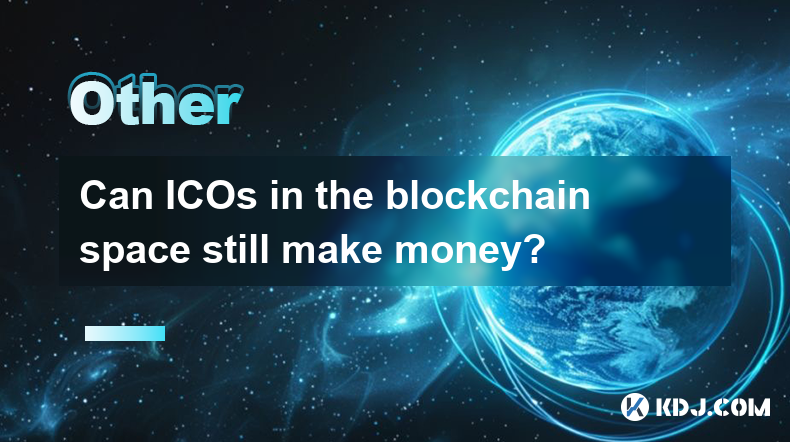
Can ICOs in the blockchain space still make money?
Apr 17,2025 at 08:29pm
The landscape of Initial Coin Offerings (ICOs) in the blockchain space has evolved significantly since their peak in 2017 and 2018. Despite the increased regulatory scrutiny and the rise of alternative fundraising methods like Security Token Offerings (STOs) and Initial Exchange Offerings (IEOs), ICOs can still be a viable way to raise funds and generat...
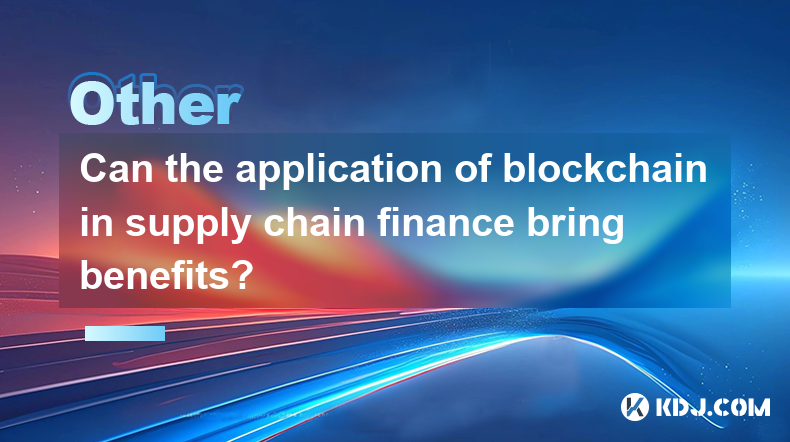
Can the application of blockchain in supply chain finance bring benefits?
Apr 15,2025 at 04:00pm
Can the application of blockchain in supply chain finance bring benefits? The integration of blockchain technology into supply chain finance has garnered significant attention in the cryptocurrency and financial sectors. This article explores how blockchain can potentially revolutionize supply chain finance, detailing its benefits and providing a compre...

Does the ranking of Chinese blockchain apps include cross-chain applications?
Apr 14,2025 at 04:00pm
The ranking of Chinese blockchain apps is a comprehensive evaluation that takes into account various aspects such as user base, transaction volume, and technological innovation. A pertinent question arises regarding whether these rankings include cross-chain applications. Cross-chain applications, which allow different blockchain networks to interact an...
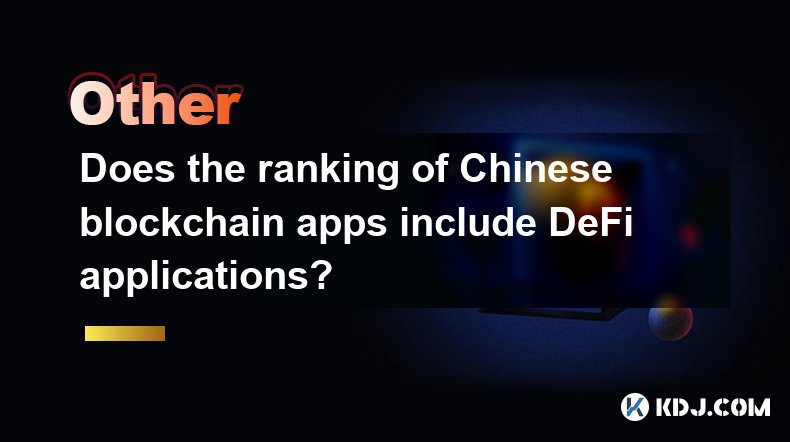
Does the ranking of Chinese blockchain apps include DeFi applications?
Apr 15,2025 at 06:57am
The ranking of Chinese blockchain apps is a comprehensive list that showcases the most popular and influential applications within the cryptocurrency ecosystem. One question that often arises is whether these rankings include DeFi applications. To answer this, we need to delve into the specifics of how these rankings are compiled and what types of appli...
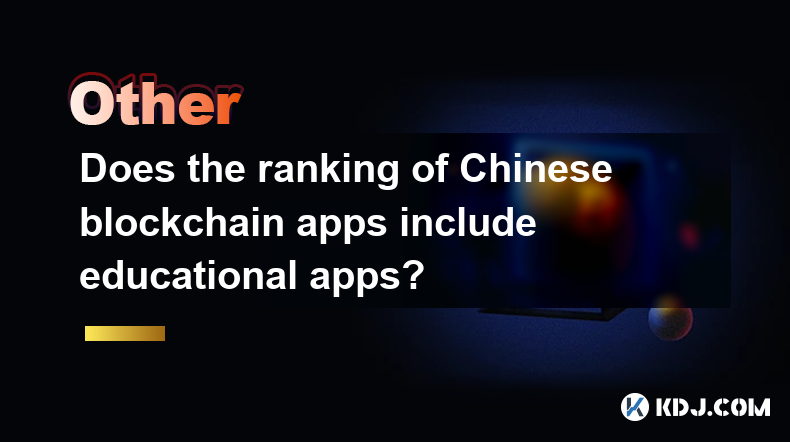
Does the ranking of Chinese blockchain apps include educational apps?
Apr 16,2025 at 03:35am
The ranking of Chinese blockchain apps often includes a variety of categories, from finance and gaming to social networking and beyond. One question that frequently arises is whether these rankings include educational apps. To address this, we need to delve into the specifics of how blockchain apps are categorized and ranked in China, and whether educat...
Does the ranking of Chinese blockchain apps include enterprise-level applications?
Apr 15,2025 at 06:42am
The ranking of Chinese blockchain apps often includes a variety of applications, ranging from consumer-focused to enterprise-level solutions. Understanding the scope and criteria for these rankings is essential to determine if enterprise-level applications are included. This article delves into the specifics of how Chinese blockchain app rankings are co...

Can ICOs in the blockchain space still make money?
Apr 17,2025 at 08:29pm
The landscape of Initial Coin Offerings (ICOs) in the blockchain space has evolved significantly since their peak in 2017 and 2018. Despite the increased regulatory scrutiny and the rise of alternative fundraising methods like Security Token Offerings (STOs) and Initial Exchange Offerings (IEOs), ICOs can still be a viable way to raise funds and generat...

Can the application of blockchain in supply chain finance bring benefits?
Apr 15,2025 at 04:00pm
Can the application of blockchain in supply chain finance bring benefits? The integration of blockchain technology into supply chain finance has garnered significant attention in the cryptocurrency and financial sectors. This article explores how blockchain can potentially revolutionize supply chain finance, detailing its benefits and providing a compre...

Does the ranking of Chinese blockchain apps include cross-chain applications?
Apr 14,2025 at 04:00pm
The ranking of Chinese blockchain apps is a comprehensive evaluation that takes into account various aspects such as user base, transaction volume, and technological innovation. A pertinent question arises regarding whether these rankings include cross-chain applications. Cross-chain applications, which allow different blockchain networks to interact an...

Does the ranking of Chinese blockchain apps include DeFi applications?
Apr 15,2025 at 06:57am
The ranking of Chinese blockchain apps is a comprehensive list that showcases the most popular and influential applications within the cryptocurrency ecosystem. One question that often arises is whether these rankings include DeFi applications. To answer this, we need to delve into the specifics of how these rankings are compiled and what types of appli...

Does the ranking of Chinese blockchain apps include educational apps?
Apr 16,2025 at 03:35am
The ranking of Chinese blockchain apps often includes a variety of categories, from finance and gaming to social networking and beyond. One question that frequently arises is whether these rankings include educational apps. To address this, we need to delve into the specifics of how blockchain apps are categorized and ranked in China, and whether educat...

Does the ranking of Chinese blockchain apps include enterprise-level applications?
Apr 15,2025 at 06:42am
The ranking of Chinese blockchain apps often includes a variety of applications, ranging from consumer-focused to enterprise-level solutions. Understanding the scope and criteria for these rankings is essential to determine if enterprise-level applications are included. This article delves into the specifics of how Chinese blockchain app rankings are co...
See all articles






















































































